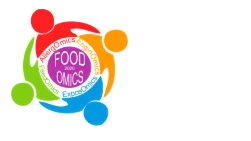|
Information |
|
AGENDA |
|
JULY 1st July 2020 Deadline for pre registration
AUGUST 20th August 2020
Deadline for early bird registration |
|
Teatro Verdi Via Luigi Sostegni 13/A, Cesena (Italy) |
|
INTERNATIONAL CONFERENCE ON FOODOMICS 6th EDITION from Knowledge to Industry, from Industry to Knowledge CESENA | 14-16 OCTOBER, 2020 |
|
WHAT’S NEW IN IFC 2020? |
|
TOPICS FoodOmics for food safety Food safety is an important issue where omics technologies coupled with statistical and bioinformatics tools can offer solution. Food allergy prevalence is increasing over time becoming a significant public health problem. The reliability of the omics-based strategies for allergen (and mycotoxins) quantification in food and in the digestome, and to validate biomarkers associated to allergic phenotypes is increasing. On the one hand the use of multiple-omics technologies will improve the understanding of allergenicity, on the other it will allow food allergens identification, so helping the food industry in the production of hypoallergenic foods. In addition, in the last years quantitative analysis of molecular and functional changes has been introduced in multiple levels of biological organization used in traditional toxicology testing. The core of this new strategy, termed systems toxicology, are the “omics” techniques. FoodOmics for the formulation of new food The development of new industrial food technologies represents a new challenge that aims to improve and support sustainability, food and nutrition security, population growth, nutrition, bioactive bioavailability, health and well-being. Food engineering is at a crossroads and should embrace open innovation while formulating new products. The “foodomics vision”, combining the evaluation of food, processing, digestion, absorption and health & wellness outcomes by omics technologies is at the basis of a new era in food engineering and technology. Enginomics represents a cutting-edge science that harmonizes the food processing and human digestion in a holistic way using new technologies for modelling and simulating the main human metabolic processes. Exploring human digestive processes using big data and food engineering support will contribute to an improved production of food for future. FoodOmics for understanding the impact of environmental exposure The cumulative effect of environmental stressors, their interaction with genetic factors and key susceptible developmental stages determines disease risks. The exposome - representing all nongenetic exposures (including exposures from our diets, our lifestyles, and our behaviours) experienced during the life course- is recognized to be extremely challenging due to its dynamic, heterogeneous, and still unknown nature. In this scenario, advances in new and emerging -omics technologies are opportunities to characterize internal and external domains of the exposome in a more holistic way. Exposomics is the new science that analyse the human response to exposure to the diet/lifestyle/environmental factors through innovative omics technologies. The use of omics analyses provides high throughput exposomics datasets that can help understanding in an unbiased manner chronic diseases pathophysiology in the context of industrialization, drastic lifestyle changes, urbanization, and pollution. FoodOmics for animal nutrition It is a fact that all animals, not only humans, must feed themselves and that proper nutrit ion is at the basis of their health, well-being and performance. Feedomics is an emerging field in animal research that, as well as foodomics, integrates a range of omics technologies. This approach can help elucidating the complex interactions among feed, environment, genetics, physiology, and the symbiotic microbiota with the final aim of improving overall animal welfare and health, productivity, and product quality. The aim of the feedomics approach is not only animal nutrition but also human nutrition and sustainable development in the food animal industry from “farm” to “fork” through the feed and food industry. |

|
SEPTEMBER 1st September 2020
Deadline for late registration (only for oral presentations) and for abstracts oral presentation
20th September 2020
Deadline for late registration and for abstracts for poster presentation |
|
OCTOBER 14th October 2020
Welcome reception and registration Conference begins at 14:00
15th October 2020
Social Dinner at 20:30
16th October 2020
Conference ends at 17:00 |